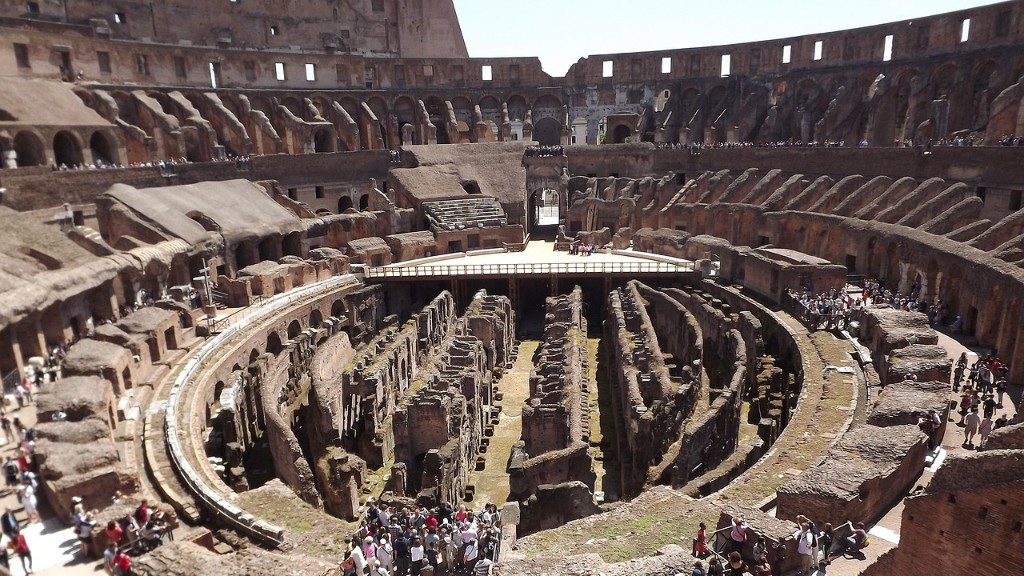Early Christians in Rome faced a hostile environment. The Roman Empire did not welcome new religions, and Christians were often seen as a threat to the state. However, the message of Christianity began to spread through Rome, first through the efforts of missionaries and then through the example of Christian leaders. Over time, more and more Romans came to embrace the new faith, and Christianity began to take root in the city.
Christianity spread throughout Rome through a variety of different methods. One way was through missionaries who went out and preached the gospel to those who had not yet heard about Jesus Christ. Another way was through word of mouth, as believers shared their faith with those around them. Additionally, Christianity spread through art and literature, as people were exposed to the message of the gospel through these mediums.
Who spread Christianity in ancient Rome?
The Christian faith was spread across the Roman Empire by energetic apostles like Paul. Paul traveled across the empire, preaching in some of the most important cities. This helped to spread the Christian message far and wide.
Christianity became the official religion of the Roman Empire when Emperor Theodosius I issued the Edict of Thessalonica in 380. This Edict recognized the catholic orthodoxy of Nicene Christians in the Great Church as the Roman Empire’s state religion. Christianity had a profound impact on the Roman Empire, transforming its culture and society.
When did Christianity spread in Rome
The Edict of Thessalonica made Nicene Christianity the official religion of the state in 380 CE. This confirmed and solidified the influence of Christianity not only on the Roman world at the time but also for the rest of world history. Christianity has had a significant impact on world history, shaping the course of events and influencing the lives of billions of people.
Ehrman’s five factors for the rapid spread of Christianity are: (1) the promise of salvation and eternal life for everyone was an attractive alternative to Roman religions; (2) stories of miracles and healings purportedly showed that the one Christian God was more powerful than the many Roman gods; (3) Christianity was appealing to women, who were largely excluded from the Roman religious establishment; (4) Christianity was an egalitarian religion, open to people of all social classes, while Roman religion was largely restricted to the elite; and (5) the Roman Empire’s policy of tolerating all religions made it possible for Christianity to spread quickly.
How did Christianity spread throughout the Roman Empire and what were the consequences?
Christianity spread throughout the Roman Empire primarily through the efforts of missionaries and apostles. Although Christians were often persecuted for their beliefs, this changed when the emperor Constantine converted to Christianity. As a result, Christianity became the dominant religion of the empire.
Constantine’s decision to cease the persecution of Christians in the Roman Empire was a turning point for early Christianity, sometimes referred to as the Triumph of the Church, the Peace of the Church or the Constantinian shift. This decision allowed Christianity to spread and grow throughout the empire and beyond, eventually becoming the dominant religion of Europe. While Constantine’s motives for halting the persecution of Christians are debated, this act undoubtedly had a profound and lasting impact on the development of Christianity.
When and how did Christianity spread in the Roman Empire?
The Edict of Thessalonica was issued in 380 CE by the emperor Theodosius. It made Christianity, specifically Nicene Christianity, the official religion of the Roman Empire. This edict helped to solidify the power of the Christian Church and contribute to its growth and influence.
The rise of Christianity may have played a role in the fall of the western half of the Roman Empire, but it is not the sole cause. Rome fell in 476 CE, but this was not the end of the Empire. In 395 CE, the Empire was split in two.
Why did Christianity attract so many followers in Rome
Christianity drew in believers from and away from Roman gods- Christianity offered individuals salvation and eternal life, which was a personal appeal that state-based religion could not offer. This caused many people to convert to Christianity, away from the Roman gods.
Christianity undermined the religious traditions of the Roman state by teaching that there was only one true god. This belief directly contradicted the Roman belief that their emperor was a god. As a result, the authority and credibility of the emperor was weakened.
Why did the Romans try to stop Christianity from spreading?
Christians in the Roman Empire were persecuted for their refusal to worship the gods or take part in sacrifice. This was likely due to the general dislike for Christians that arose from their refusal to worship the emperor.
Christianity became one of the most widespread religions in the world due mainly to its appeal to people of all social classes and its compatibility with other religions. The religion’s message of love, forgiveness, and redemption was attractive to many people, and its doctrine of equality helped to foster social cohesion. Christianity also benefited from the political unification of the Roman Empire, which made transportation and communication much easier, and from the empire’s extensive network of roads, which made travel easier and more efficient.
Who was the first person to spread Christianity
The apostle Paul is one of the most important figures in the history of Christianity. His missionary journeys and writings played a pivotal role in the spread of the gospel to the Gentiles. Paul’s conversion from a zealous persecutor of Christians to a passionate follower of Christ is an amazing testimony to the power of God’s grace.
Constantine was the son of Helena, a woman of low birth from Bithynia in Asia Minor, and Constantius Chlorus, a general who became one of the six coequal rulers of the Tetrarchy established by Diocletian in 293. On his father’s death in 306, Constantine was proclaimed emperor by his troops at Eburacum (now York, England).
In 312, Constantine had a vision of a radiant cross in the sky, bearing the Greek words “Εν Τουτω ΝΙΚΑ” (“By this, conquer”), which he interpreted as a divine command to use the Chi-Rho, the first two letters of the Greek word “Christ” superimposed upon each other, as his military standard. This emblem later became known as the “Labarum of Constantine.”
Constantine defeated Maxentius at the Battle of the Milvian Bridge on October 28, 312. He then marched on Rome, which he entered triumphantly on November 11. Three months later, he convened the first Council of Nicaea, primarily to resolve the difference between those who, following
Did Rome fall because of Christianity?
Christianity was one of the many factors that contributed to the fall of the Roman Empire. The Christian religion, which was monotheistic, ran counter to the traditional Roman religion, which was polytheistic (many gods). Christianity also brought with it new morality and ethical standards that were in stark contrast to the traditional Roman way of life. These new ideas and values eventually undermined the stability and prosperity of the Roman Empire, leading to its eventual demise.
It is often claimed that Christians were persecuted for their refusal to worship the emperor, but this is not the only reason why they were disliked by the people living in the Roman Empire. Christians were also disliked because they refused to worship the gods or take part in sacrifice, which was expected of those living in the Roman Empire. Christians were seen as a threat to the Roman way of life, and this is likely what led to their persecution.
Warp Up
The Christian religion is believed to have been founded by Jesus Christ, who was crucified in Rome in the year 33 AD. Christianity then spread through the city of Rome, and eventually throughout the Roman Empire. There are several theories about how Christianity spread so rapidly. One theory is that the Roman Empire was in a time of political and social turmoil, and people were looking for something to believe in. Another theory is that the early Christians were very passionate about their new religion, and they shared it with others enthusiastically. Whatever the reasons, Christianity quickly became one of the most popular religions in the Roman Empire.
The spread of Christianity in ancient Rome was a slow and gradual process. It was initially spread by Roman soldiers and merchants who had come in contact with Christians in the eastern parts of the Roman Empire. Christianity also spread through the personal interaction between Christians and non-Christians. Over time, more and more people began to convert to Christianity, and it became one of the dominant religions in Rome.





